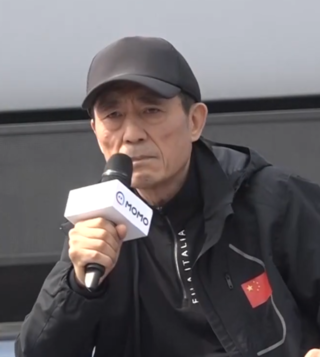
Zhang Yimou is a Chinese film director, producer, writer, actor and former cinematographer. He is a part of the Fifth Generation of Chinese filmmakers, Honorary Doctorate of Boston University and Yale University, Distinguished Professor of Beijing Film Academy. He made his directorial debut in 1988 with Red Sorghum.
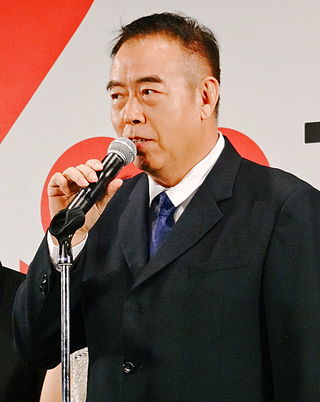
Chen Kaige is a Chinese film director and a leading figure of the fifth generation of Chinese cinema. His films are known for their visual flair and epic storytelling. Chen won the Palme d'Or at 1993 Cannes Film Festival and the International Federation of Film Critics (FIPRESCI) Award in 1993 for directing Farewell My Concubine.

Tian Zhuangzhuang is a Chinese film director, producer and actor.

Beijing Film Academy is a coeducational state-run higher education institution in Beijing, China. The film school is the largest institution specializing in the tertiary education for film and television production in Asia. The academy has earned international recognition for its achievements in film production.

Zhang Yuan is a Chinese film director who has been described by film scholars as a pioneering member of China's Sixth Generation of filmmakers. He and his films have won ten awards out of seventeen nominations received at international film festivals.

Wang Xiaoshuai is a Chinese film director, screenwriter and occasional actor. He is commonly grouped under the loose association of filmmakers known as the "Sixth Generation" of the Cinema of China. Like others in this generation, and in contrast with earlier Chinese filmmakers who produced mostly historical drama, Wang proposed a “new urban Chinese cinema [that] has been mainly concerned with bearing witness of a fast- paced transforming China and producing a localized critique of globalization.”

Romance of the Three Kingdoms is a Chinese television series adapted from the classical 14th century novel of the same title by Luo Guanzhong. The series was produced by China Central Television (CCTV) and was first aired on the network in 1994. It spanned a total of 84 episodes, each approximately 45 minutes long. One of the most expensive television series produced at the time, the project was completed over four years and involved over 400,000 cast and crew members, including divisions of the People's Liberation Army from the Beijing, Nanjing and Chengdu military regions. Some of the dialogues spoken by characters were adapted directly from the novel. Extensive battle scenes, such as the battles of Guandu, Red Cliffs and Xiaoting, were also live-acted.
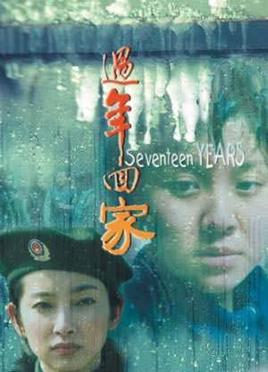
Seventeen Years is a 1999 Chinese film directed by Zhang Yuan and starring Li Bingbing in her feature film debut. Seventeen Years was screened at several international film festivals where it garnered numerous accolades, including the Director's Award at the 56th Venice Film Festival.

The Days is filmmaker Wang Xiaoshuai's 1993 directorial debut. Filmed entirely in black-and-white, The Days follows the life of Dong, and Chun, married artists who have recently graduated from the Beijing Art Institute. Living meagerly in the hope of making enough money off their works, it soon becomes obvious to everyone but themselves that the marriage has begun to die.
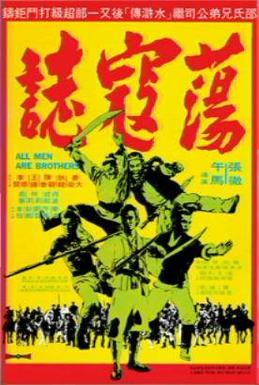
All Men Are Brothers, also known as Seven Soldiers of Kung Fu, is a 1975 Hong Kong wuxia film based on the Chinese classical 14th century novel Water Margin. The film was produced by the Shaw Brothers Studio and directed by Chang Cheh and Wu Ma.
Ning Ying is a female Chinese film director often considered a member of China's "Sixth Generation" filmmaker coterie, a group that also includes Jia Zhangke, Zhang Yuan and Wang Xiaoshuai. However, this is more a result of a shared subject matter than anything else, as chronologically, Ning is closer to the earlier Fifth Generation. Her sister, the screenwriter Ning Dai, is a frequent collaborator and the wife of fellow director Zhang Yuan. In 1997, she was a member of the jury at the 47th Berlin International Film Festival.
Sons is a 1996 Chinese film directed by Zhang Yuan. Detailing the collapse of a family due to alcoholism, Sons straddles the line between fiction and documentary, as the film's "actors" all play themselves in reenactments of their own lives.

Three Kingdoms is a 2010 Chinese television series based on the events in the late Eastern Han dynasty and the Three Kingdoms period. The plot is adapted from the 14th century historical novel Romance of the Three Kingdoms and other stories about the Three Kingdoms period. Directed by Gao Xixi, the series had a budget of over 160 million RMB and took five years of pre-production work. Shooting of the series commenced in October 2008, and it was released in China in May 2010.
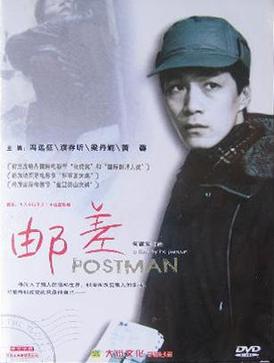
Postman is a 1995 Chinese Mandarin drama film directed by He Jianjun and produced by Tian Yan, Shu Kei. It is the story of a shy mailman played by Feng Yuanzheng who steals and reads the letters of people on his route. The film is considered part of China's sixth generation movement.

The Water Margin is a 1998 Chinese television series adapted from Shi Nai'an's classical 14th-century novel of the same title. It was produced by CCTV with Zhang Jizhong as producer. It was first broadcast in China in January 1998. The series also featured action choreography by Yuen Woo-ping.
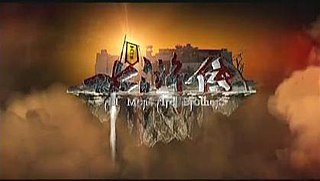
All Men Are Brothers is a 2011 Chinese television series adapted from Shi Nai'an's 14th century novel Water Margin, one of the Four Great Classical Novels of Chinese literature. The series is directed by Kuk Kwok-leung and features cast members from mainland China, Taiwan and Hong Kong. The series was first broadcast on 8TV in March 2011 in Malaysia.

L'Est Films Group Int’l Co (EFG) is an entertainment industry company involved in movie distribution and production.

The Legend of Chu Liuxiang is a Chinese television series directed by Aman Chang, starring Taiwanese actor-singer Ken Chang as the protagonist Chu Liuxiang from the wuxia novel series Chu Liuxiang Series by Gu Long. The series is adapted from four novels in the Chu Liuxiang Xinzhuan segment of the novel series. Filming for the series started in October 2010 in the Water Margin Film City in Dongping County, Shandong Province, China. It was first broadcast on ChingTV in South Korea on 14 June 2012.

Zhaoyao, also known as The Legends, is a 2019 Chinese television series starring Bai Lu, Xu Kai, Dai Xu and Xiao Yan. It is based on the novel of the same name by Jiuliu Feixiang. It aired on Hunan TV from January 28 to April 3, 2019.

















